CARES Act – What Employers Need to Know
Author: Harmony Kolling
The Coronavirus Aid, Relief and Economic Security Act (CARES) is now in place and provides some major relief for employers. Below is a summary of portions of the act that specifically benefit employers through loan programs and tax credits, and more specific information on the provisions which impact employers the most are outlined in the video presentation below.
For more detailed information into the specifics of some of these provisions, be sure to check out the other articles on our website as we will keep you updated on any new information and tools for your business as the resources become available.
“Paycheck Protection Program” Loans
This measure establishes a new Paycheck Protection Program to let small businesses, nonprofits, and individuals seek loans through the Small Business Administration’s 7(a) loan program from February 15, 2020 through June 30, 2020.
- Any business operational as of 2/15/2020 that paid salaries and payroll taxes will be eligible, but there is a limit of no more than 500 employees (with some provisions for exceptions). This includes sole proprietors, tribal entities, and non-profits.
- Loans can assist with covering payroll, interest on mortgages, rent, utilities, and any interest on other debt obligations that were incurred before 2/15/2020.
- Loans may have deferment of repayment for a period of at least six months, but not to exceed a year.
- Loans will have a maximum maturity of 10 years and an interest rate not to exceed 4%.
- Lenders will not require application fees, closing costs or collateral.
- Loans are federally guaranteed and no personal guarantee is required by the business owner.
- Businesses would qualify for a loan amount calculated at the LESSER of:
- The sum of 1) average monthly “payroll costs” for the 1 year period ending on the date the loan was made (an alternative calculation is available for seasonal employers) multiplied by 2.5 and 2) any disaster loan amounts taken out after 1/31/2020 that has been refinanced into a paycheck protection loan
OR
- $10 million
- “Payroll costs” are defined as the sum of the following:
- Wages, commissions, salary or similar compensation to an employee or independent contractor,
- Payment of a cash tip or equivalent,
- Payment for vacation, parental, family, medical or sick leave,
- Allowance for dismissal or separation
- Payment for group health care benefits, including premiums,
- Payment of any retirement benefits and
- Payment of state or local tax assessed on the compensation of employees
- “Payroll costs” do not include:
- The compensation of any individual employee in excess of an annual salary of $100,000
- Payroll taxes
- Any compensation of an employee whose principal place of business is outside of the U.S. or
- Any qualified sick leave or family medical leave for which a credit is allowed under the Families First Coronavirus Response Act passed on March 18, 2020.
Loan Forgiveness of “Paycheck Protection Loans”
A separate section of the CARES Act calls for a portion of the “Paycheck Protection Loans” to be forgiven on a tax-free basis. The amount to be forgiven is the sum of the following payments made by the borrower during the 8-week period beginning on the date of the loan:
- Payroll costs (as defined previously)
- Interest payments on any secured debt incurred prior to 2/15/2020
- Rent or lease payments in force prior to 2/15/2020
- Utility payments in which service began before 2/15/2020
- To seek forgiveness, a borrower must submit to the lender an application that includes documentation verifying the number of employees and pay rates, and cancelled checks showing mortgage, rent, or utility payments.
- There is a provision, however, that reduces the amount that may be forgiven if the employer does either of the following:
- Reduces its workforce during the 8-week period when compared to other periods in 2019 or 2020 or
- Reduces the salary or wages paid to an employee who had earned less than $100,000 in annualized salary by more than 25% during the covered period.
- This reduction can be avoided, however, if the employer rehires or increases the employee’s pay by June 30, 2020, will still qualify and will not be penalized for having a reduced payroll during the loan period.
Employee Retention Credit
The CARES Act also includes a one-year only credit against the employer’s 6.2% share of Social Security payroll taxes for any business that is forced to suspend or close its operations due to COVID-19, but that continues to pay its employees during the shut-down.
A business is eligible in one of two ways:
- The operation of the business was fully or partially suspended during any calendar quarter during 2020 due to orders from an appropriate government authority resulting from COVID-19, or
- The business remained open, but during any quarter of 2020, gross receipts for that quarter were less than 50% of what they were for the same quarter in 2019. The business will then be entitled to a credit for each quarter, until the business has a quarter where it’s recovered sufficiently that its receipts exceed 80% of what they were for the same quarter in the previous year.
- For each eligible quarter, the business will receive a refundable credit against its 6.2% share of Social Security payroll taxes equal to 50% of the “qualified wages” paid to EACH employee for that quarter, ending on 12/31/2020. Wages paid between March 13, 2020 and December 31, 2020 are eligible.
- “Qualified wages” depend on the size of the business – using their 2019 employee count. If a business had more than 100 employees during 2019, the qualified wages are limited only to those wages that were paid by the employer during the period of time the business was shut down, limited to 30 days per employee.
- If there were less than 100 employees in 2019, qualified wages include not only those paid to employees during a shut-down, but also wages paid for each quarter that the business has suffered a sharp decline in year-over-year receipts (as describe earlier). Alternative methods would apply for tax-exempt organizations.
- In both cases, qualified wages include any “qualified health plan expenses” allocable to wages, such as amounts paid to maintain a group health plan. In either case, however, the amount of qualified wages for each employee for all quarters may not exceed $10,000.
- Wages taken into account in determining the new payroll tax credit for family medical leave or sick leave as part of the Families First Coronavirus Response Act passed on March 18, 2020, will not be taken into account in determining qualified wages for this employee retention credit. Additionally, if an employer takes out a payroll protection loan, no employee retention credit will be available.
- Employers couldn’t use the credit for wages which they also have received a credit under the Work Opportunity Tax Credit or the Paid Family Medical Leave credit.
Delay of Payment of Employer Payroll Tax and Self-Employment Tax
In an effort to alleviate the burden on employers struggling to make payroll, the CARES Act also would allow the employer’s share of the 6.2% Social Security tax that would be due from the date of the bill’s enactment through 12/31/2020, to be paid in two 50% installments due on 12/31/2021 and 12/31/2022.
- Self-employed taxpayers can defer paying 50% of self-employment tax that would be due from the date of enactment through the end of 2020 until the end of 2021 (25%) and 2022 (25%).
- Therefore, an employer may not only defer the payment of their 6.2% Social Security match until 2021 and 2022, but they can also receive an immediate credit against those deferred payroll taxes should they qualify for the emergency medical leave credit, sick leave credit, or the new employee retention credit.
- The deferral is not available to any business that takes advantage of the loan forgiveness provision of the paycheck protection loan program.
Contact Our Team
Harmony Kolling
Shareholder
Email: harmony.kolling@bradymartz.com
Phone: 701-483-6000
Dickinson, ND
Dan Macintosh
Senior Manager
Email: dan.macintosh@bradymartz.com
Phone: (701) 280-2100
Fargo, ND
Scott Hasbrouck
Shareholder
Email: scott.hasbrouck@bradymartz.com
Phone: 701-775-4685
Grand Forks, ND






